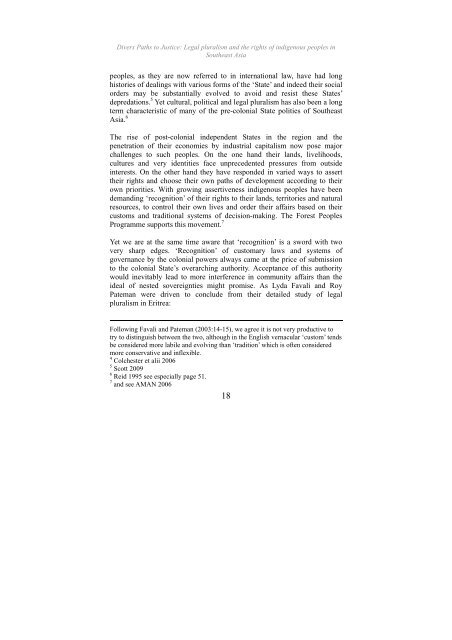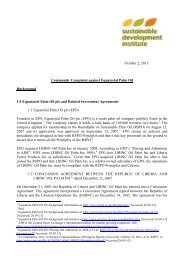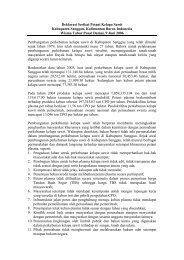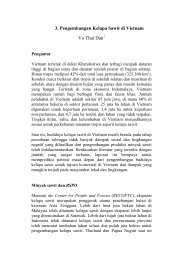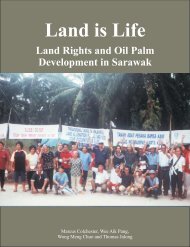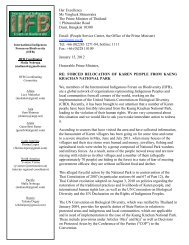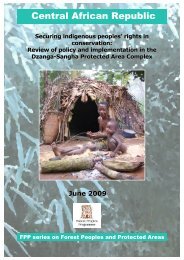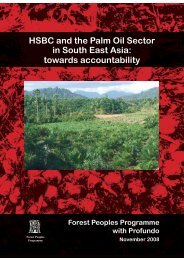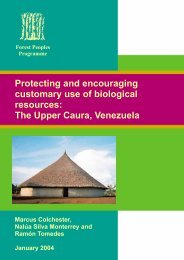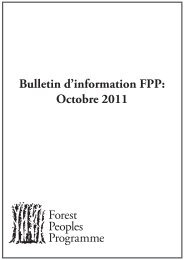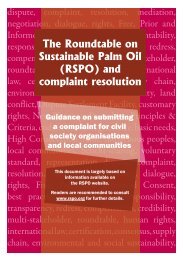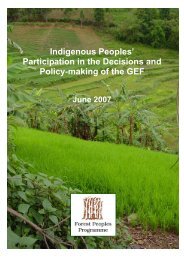Divers Paths to Justice - English - Forest Peoples Programme
Divers Paths to Justice - English - Forest Peoples Programme
Divers Paths to Justice - English - Forest Peoples Programme
You also want an ePaper? Increase the reach of your titles
YUMPU automatically turns print PDFs into web optimized ePapers that Google loves.
<strong>Divers</strong> <strong>Paths</strong> <strong>to</strong> <strong>Justice</strong>: Legal pluralism and the rights of indigenous peoples inSoutheast Asiapeoples, as they are now referred <strong>to</strong> in international law, have had longhis<strong>to</strong>ries of dealings with various forms of the ‘State’ and indeed their socialorders may be substantially evolved <strong>to</strong> avoid and resist these States’depredations. 5 Yet cultural, political and legal pluralism has also been a longterm characteristic of many of the pre-colonial State polities of SoutheastAsia. 6The rise of post-colonial independent States in the region and thepenetration of their economies by industrial capitalism now pose majorchallenges <strong>to</strong> such peoples. On the one hand their lands, livelihoods,cultures and very identities face unprecedented pressures from outsideinterests. On the other hand they have responded in varied ways <strong>to</strong> asserttheir rights and choose their own paths of development according <strong>to</strong> theirown priorities. With growing assertiveness indigenous peoples have beendemanding ‘recognition’ of their rights <strong>to</strong> their lands, terri<strong>to</strong>ries and naturalresources, <strong>to</strong> control their own lives and order their affairs based on theircus<strong>to</strong>ms and traditional systems of decision-making. The <strong>Forest</strong> <strong>Peoples</strong><strong>Programme</strong> supports this movement. 7Yet we are at the same time aware that ‘recognition’ is a sword with twovery sharp edges. ‘Recognition’ of cus<strong>to</strong>mary laws and systems ofgovernance by the colonial powers always came at the price of submission<strong>to</strong> the colonial State’s overarching authority. Acceptance of this authoritywould inevitably lead <strong>to</strong> more interference in community affairs than theideal of nested sovereignties might promise. As Lyda Favali and RoyPateman were driven <strong>to</strong> conclude from their detailed study of legalpluralism in Eritrea:Following Favali and Pateman (2003:14-15), we agree it is not very productive <strong>to</strong>try <strong>to</strong> distinguish between the two, although in the <strong>English</strong> vernacular ‘cus<strong>to</strong>m’ tendsbe considered more labile and evolving than ‘tradition’ which is often consideredmore conservative and inflexible.4 Colchester et alii 20065 Scott 20096 Reid 1995 see especially page 51.7 and see AMAN 200618


